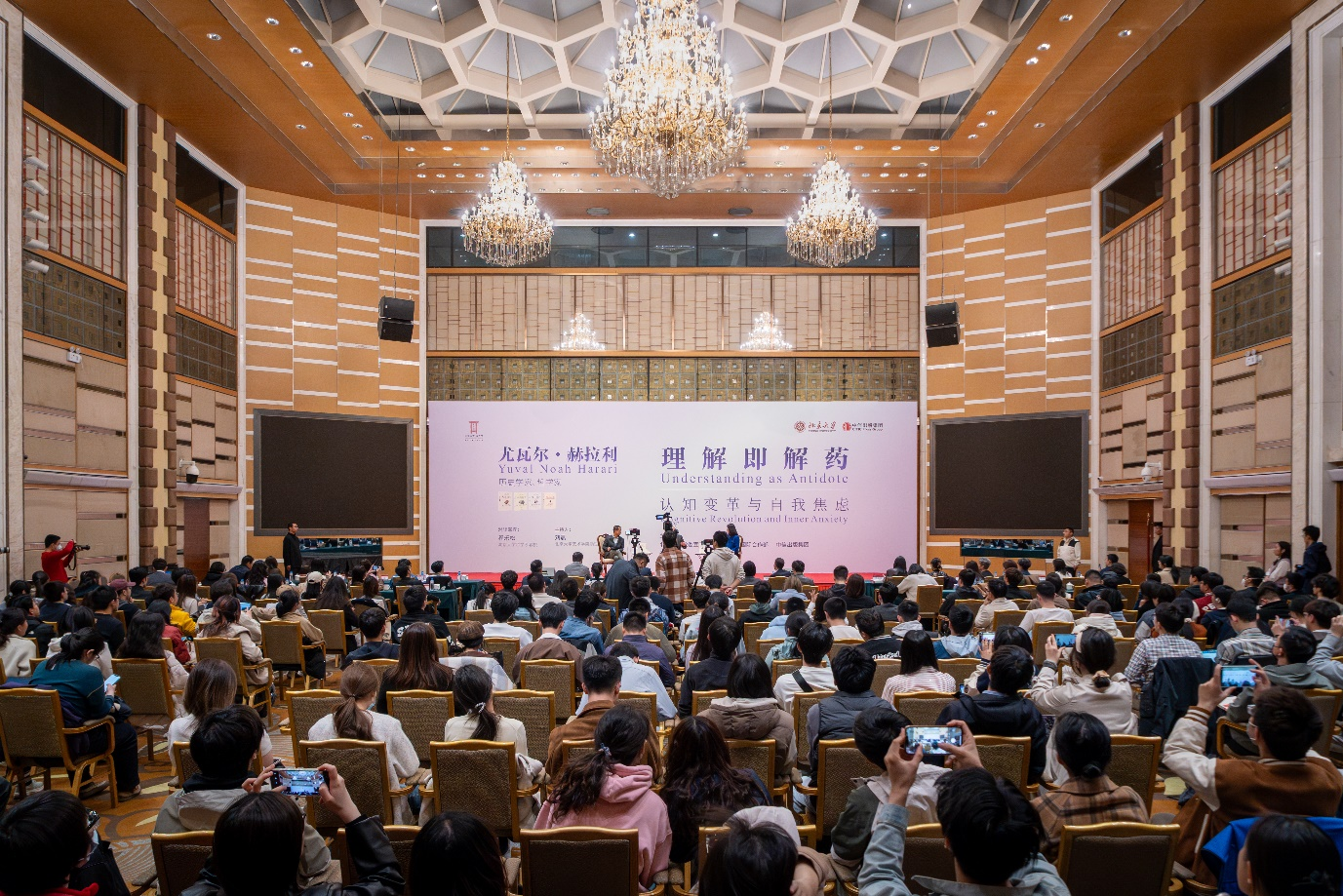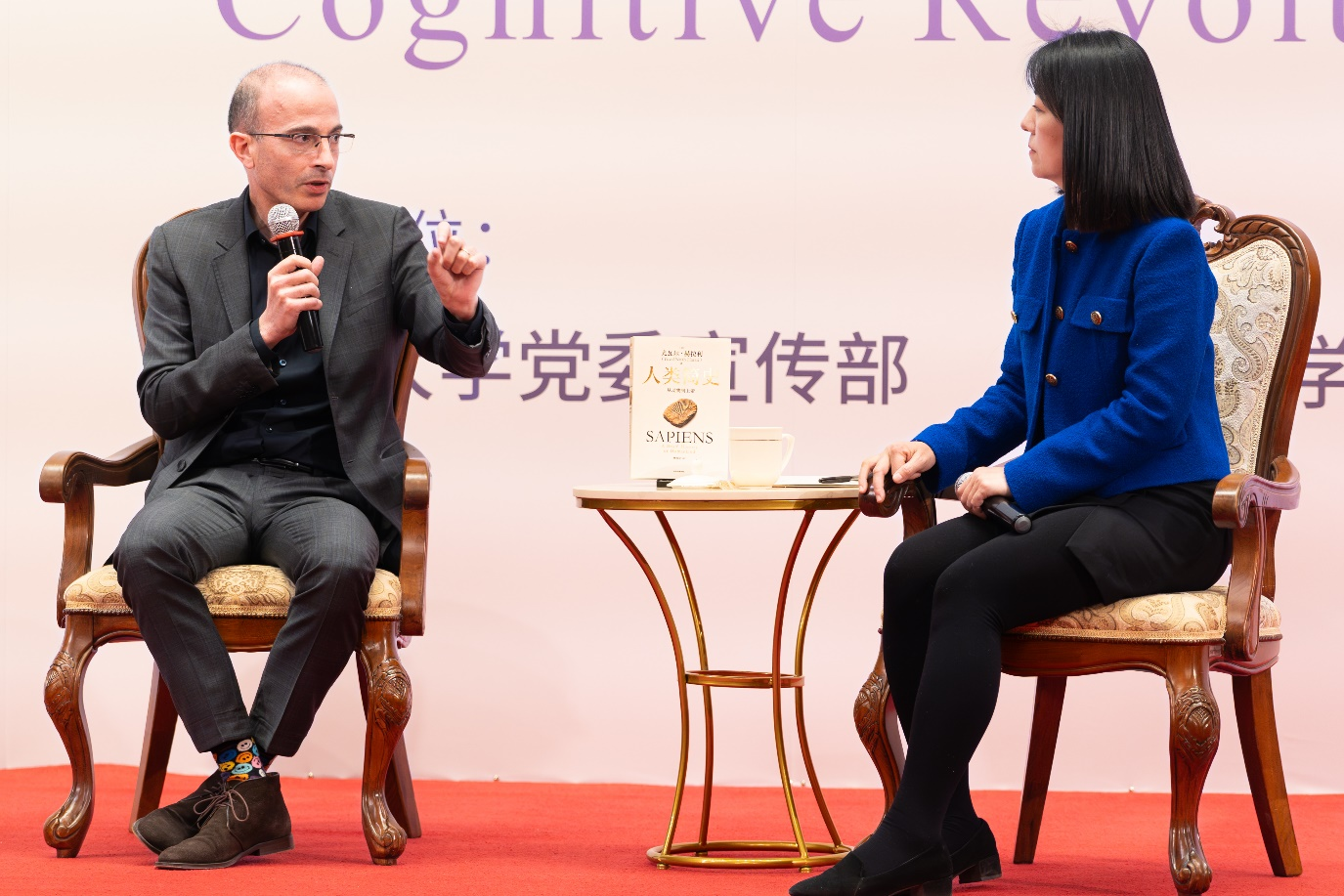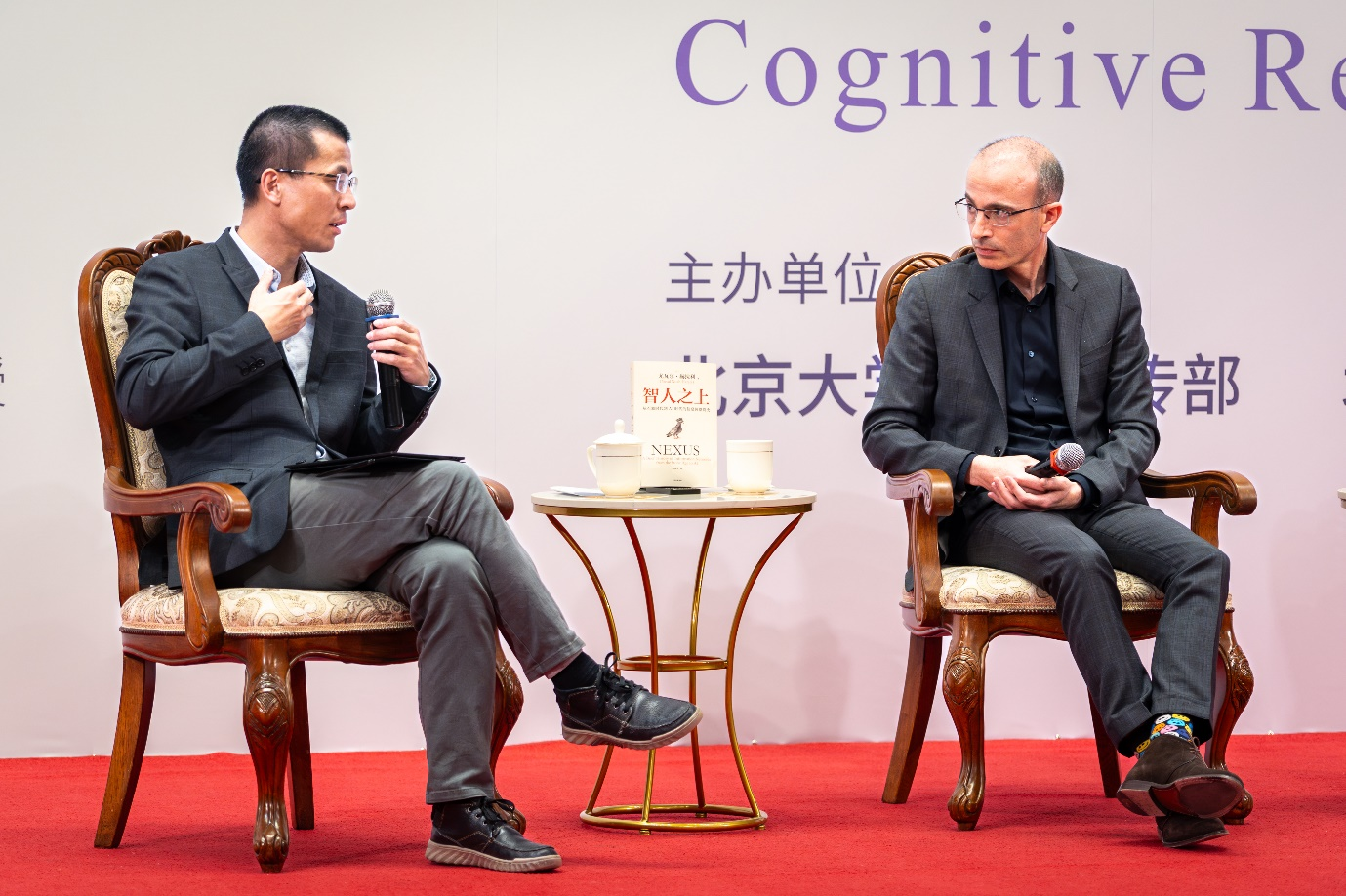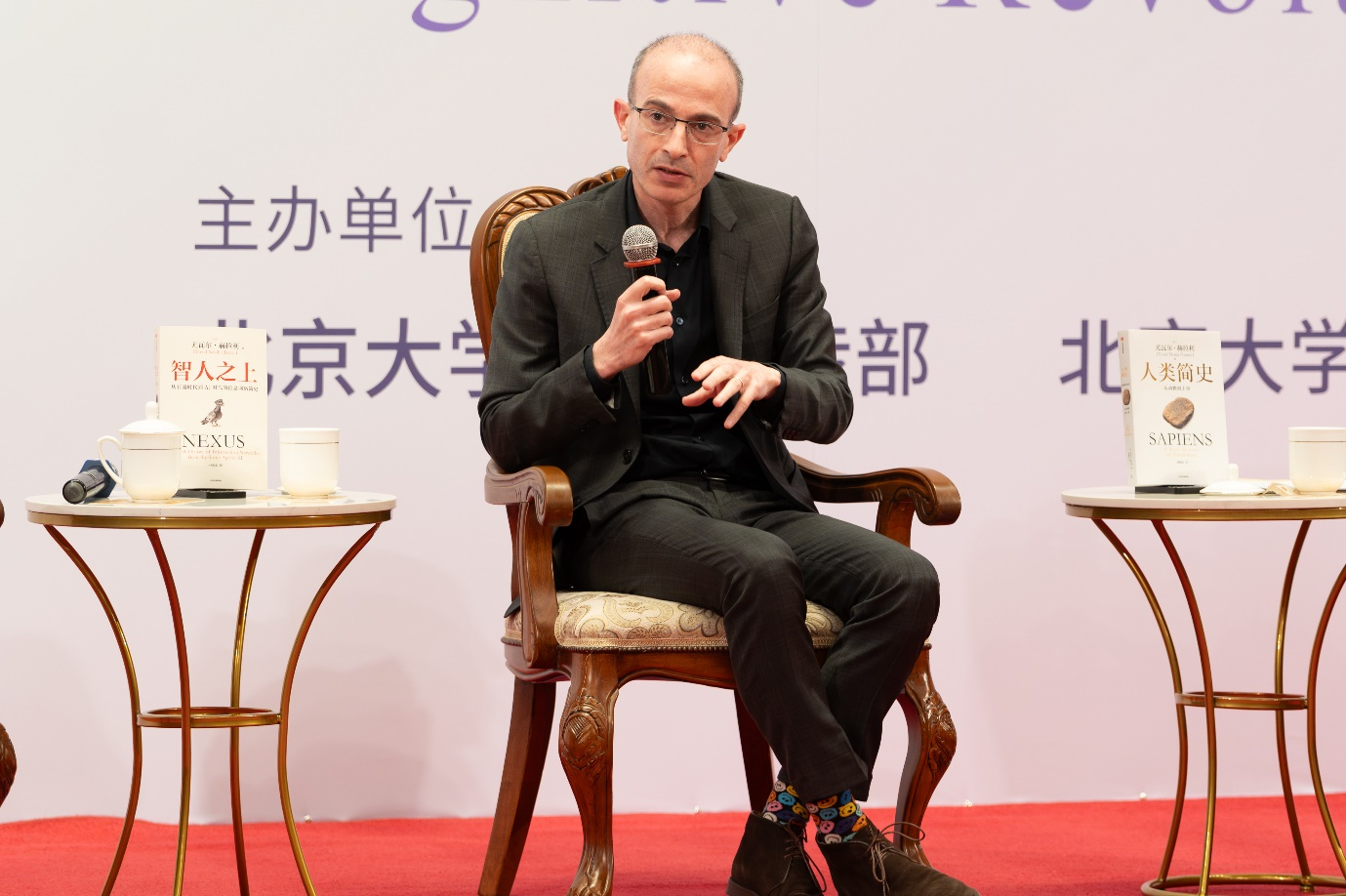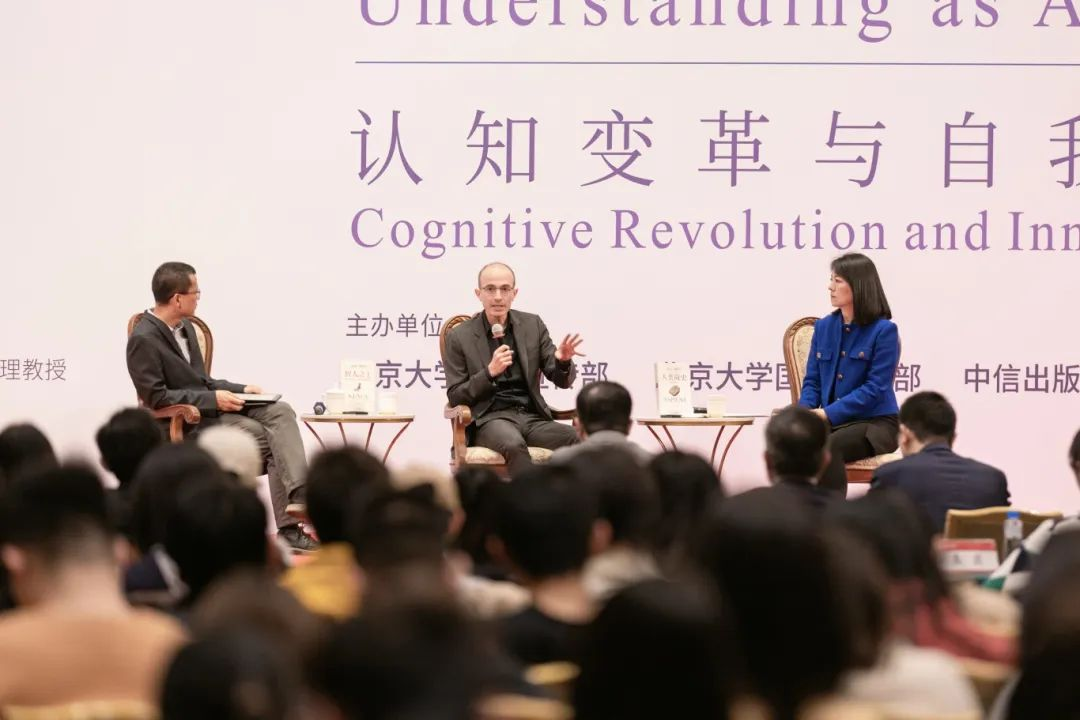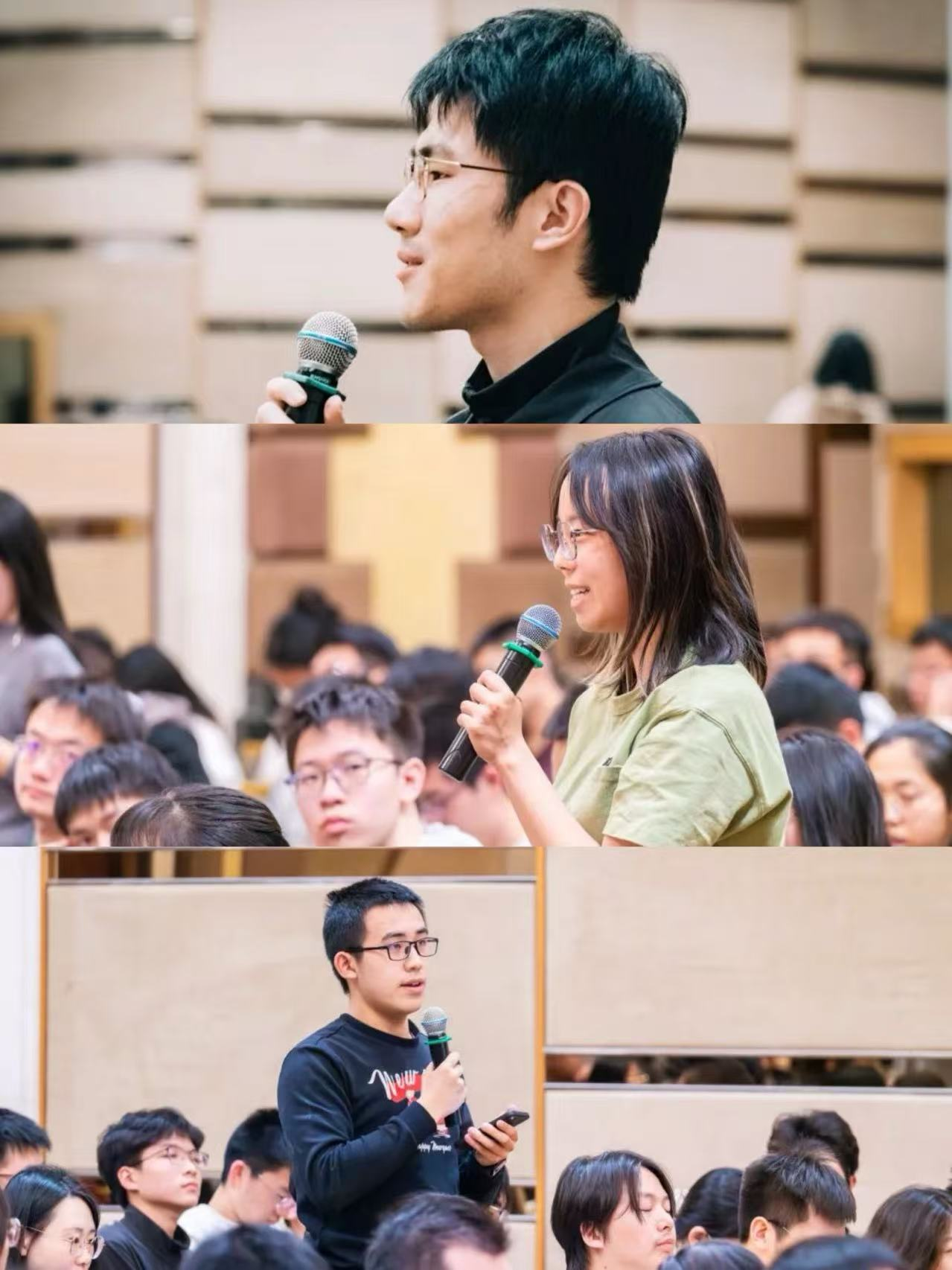Boom or doom: Yuval Noah Harari unveils the hidden pitfalls in AI advancement
Mar 31, 2025
Peking University, March 31, 2025: Humanity is facing its hour of reckoning. Yuval Noah Harari drove this point home during a discussion held at Peking University on March 26. The discussion was joined by Cheng Lesong, Dean of the Department of Philosophy and Religious Studies, and moderated by Liu Chen, researcher at the School of Arts.
Author of the international bestseller Sapiens: A Brief History of Humankind, Harari first said that his job as a historian is to not only understand the past, but also study the present and future, and most importantly understand change. He then illustrated why people and even nations need to confront the past and the dark sides about themselves by likening the process to therapy.
“It’s important to get professional help to realize some deep truths about yourself that are too difficult or too painful to acknowledge. And history is like therapy for entire civilizations or for the whole of humankind.”
Delving deep into ethics, Harari said he was neither a pessimist nor an optimist, claiming that the former leads to despair while the latter breeds complacency. “I try to find the middle path of being responsible, which is not optimist or pessimist. It’s realizing there are different possible futures ahead of us.”
Harari pointed out that the best outcome hinges on enough people making the right choice, which is not guaranteed. He also acknowledged that he was appalled by the stark lack of responsibility in AI development, characterized by AI leaders’ blind rush to beat competition and foolhardy trust in technology over other humans.
“People who lose trust in other humans imagine that they can trust an alien super intelligence. That is extremely scary.”
When prompted by Cheng’s comment that humans differ from animals because humans have intelligence, Harari cautioned against this intelligence-based sense of superiority, using his personal experience to prove that intelligence can always be bested.
Harari said that his experience studying at a competitive “talent school” for gifted kids was the most painful time in his life, because students were ruthless at proving each other wrong and no attention was paid to social skill development. “You cannot define or build a person based only on intellectual skills…Ultimately humanity is about feelings, not about thoughts.”
When the discussion shifted to the concept of "modernity trap" and the fear of losing control, Harari confirmed this fear by stating that humans’ illusory authority on religious text is fading. Human experts on religious text—rabbis and priests—will find their esteemed positions challenged by AI, which can read and memorize more text in one day than any human can in a lifetime.
“Something extremely interesting is happening right now in terms of religion…The text can talk.”
Harari then cautioned against a blind trust in religious text, a historically common practice that has led to “a gap between theory and practice”. He then illustrated his point by invoking a Buddhist story in which a parrot fell prey to a hunter by only chanting the warnings from a sympathetic monk, instead of acting on it.
In closing remarks, Cheng expressed his optimism that humans will remain irreplaceable for their emotions and feelings.
However, Harari stressed that what makes AI efficient is goals, not consciousness or feelings. He gave two examples — a self-driving car programmed to reach its destination might comply so implicitly that it disregards pedestrians in its way; AI algorithms in social media stir up hatred and fear just to drive up user engagement, without considering the harm it might cause.
During the Q&A session, students raised questions touching on AI’s impact on language, academic disciplines, and AI companionship. Harari answered that AI can integrate academic fields into one, breaking human’s limit which has led to discipline compartmentalization over the years. However, it may also degrade our linguistic ability and empathy toward others by excessively helping us in professional writing and always lending a compassionate ear.
“Learning how to build a healthy relationship is learning how to not be so self-absorbed and to actually see the other person.”
Written by: Xu Ziyue
Edited by: Chen Shizhuo
Photo by: Xu Yifeng, Du Yiming, Guo Mengjiao, Mei Xuanming, Zhang Erdi
